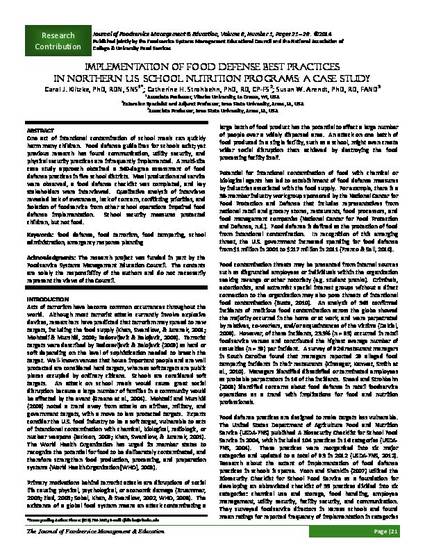
One act of intentional contamination of school meals can quickly harm many children. Food defense guidelines for schools exist; yet previous research has found communication, utility security, and physical security practices are infrequently implemented. A multi-site case study approach obtained a 360-degree assessment of food defense practices in five school districts. Meal production and service were observed, a food defense checklist was completed, and key stakeholders were interviewed. Qualitative analysis of interviews revealed lack of awareness, lack of concern, conflicting priorities, and isolation of food service from other school operations impaired food defense implementation. School security measures protected children, but not food.
Available at: http://works.bepress.com/susan_arendt/39/

This article is from Journal of Foodservice Management and Education, 2014, 8(1); 21-28. Posted with permission.